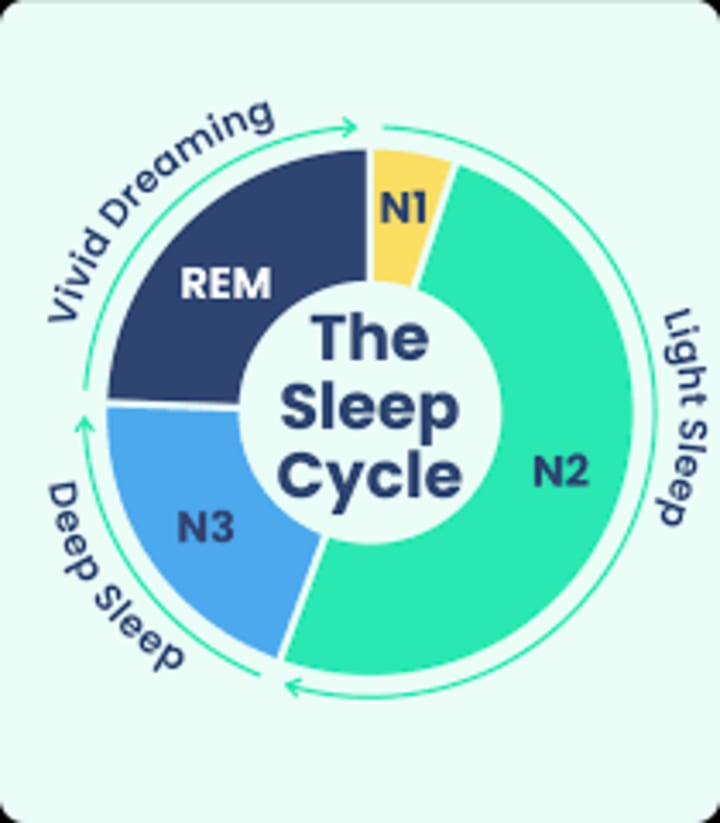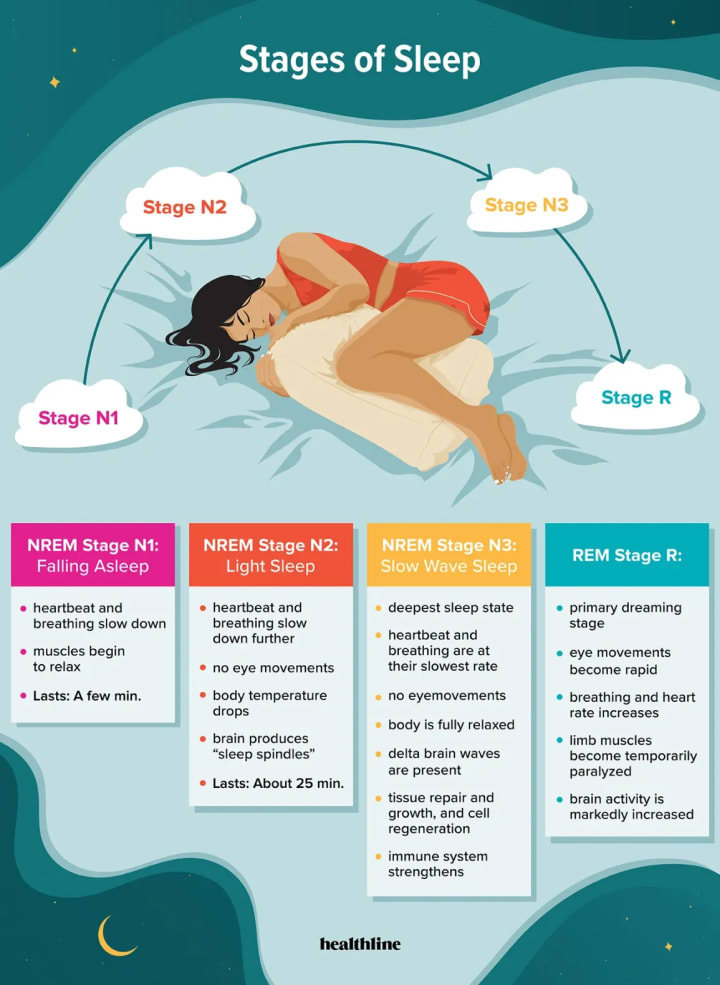Is Sleeping Important for Weight Loss
Weight Loss

Getting enough sleep is incredibly important for a variety of reasons, including weight loss. Research has shown that a lack of sleep can lead to weight gain and make it more difficult to lose weight. When we don't get enough sleep, our bodies produce more of the hormone cortisol, which can increase appetite and make us more likely to reach for unhealthy foods. Additionally, lack of sleep can affect the way our bodies burn fat, making it more difficult to shed extra pounds.
On the other hand, getting enough restful sleep can help support weight loss efforts. When we are well-rested, our bodies are more efficient at using stored fat for energy. Additionally, getting sufficient sleep can help regulate hunger hormones and reduce cravings for high-calorie, high-carbohydrate foods.
A regular sleep schedule can contribute to weight loss. While sleeping more than an average of 6.5 hours per night may have beneficial effects on weight, sleeping over 8.5 hours per night has been shown to contribute negatively to weight.
Is sleeping more good for weight loss?
Overall, individuals who increased their sleep duration were able to reduce their caloric intake by an average of 270 kcal per day – which would translate to roughly 12 kg, or 26 lbs., of weight loss over three years if the effects were maintained over a long term.
Can lack of sleep affect weight loss?
Poor sleep undermines dietary efforts to reduce weight by altering the levels of the appetite-regulating hormones, leading to reduction in dietary compliance.
How much sleep do we need?
Though there are general guidelines, some people need more sleep than others, due to their lifestyle, any health conditions, and their genetic makeup.
The National Sleep Foundation (NSF) recommend that people of different ages get the following amounts of sleep every 24 hours:
● newborns (0–3 months): 14–17 hours
● infants (4–11 months): 12–15 hours
● toddlers (1–2 years): 11–14 hours
● preschoolers (3–5 years): 10–13 hours
● school-age children (6–13 years): 9–11 hours
● teenagers (14–17 years): 8–10 hours
● younger adults (18–25 years): 7–9 hours
● adults (26–64 years): 7–9 hours
● older adults (65 years and above): 7–8 hours
What is REM sleep?

Rapid eye movement (REM) sleep is one of four stages the brain moves through while sleeping. In REM sleep, the eyes move rapidly in various directions and dreams can occur. REM sleep typically starts within 90 minutes of falling asleep.
REM sleep typically starts within 90 minutesTrusted Source of a person falling asleep, and it cycles around every 90 minutes.
During REM sleep, the body and brain go through several changes, including:
● rapid movements of the eyes
● fast and irregular breathing
● increased heart rate (to near waking levels)
● changes in body temperature
● increased blood pressure
● brain activity (similar to waking levels)
● increased oxygen consumption by the brain
● sexual arousal
● twitching of the face and limbs
Sleep cycles
To be properly rested, the body must go through several sleep cycles per night, including rapid eye movement (REM) sleep and non-REM sleep.
The stages of sleep include:

● Stage 1 non-REM: This lasts for only a few minutes. Breathing, heart rate, and brain waves begin to slow.
● Stage 2 non-REM: This stage occurs before the body enters deep sleep. The muscles relax even more, and body temperature drops.
● Stage 3 non-REM: A person needs to reach this stage of deep sleep to feel rested, and it lasts longer in the first half of the night. Breathing and heart rate slow to their lowest levels.
● REM sleep: Within 90 minutes of falling asleep, a person enters REM sleep. The brain becomes more active, the most dreaming occurs, and the arms and legs become temporarily paralyzed.
If the body does not go through these stages several times a night, the person may wake feeling fatigued and unfocused.
Sleep and health conditions
Getting enough sleep may help prevent certain health conditions.
The National Heart, Lung, and Blood InstituteTrusted Source say that sleep deprivation can increase the risk of heart disease, diabetes, kidney disease, and depression. Lack of sleep may also increase a person’s risk of injury.
Meanwhile, getting too much sleep might not be healthful either. One study found that, while getting too little sleep increased the risk of developing type 2 diabetes, getting more than 8 hours a night elevated this risk even more.
How to get better sleep
Getting quality sleep sometimes requires only simple tweaks in a routine. Other times, a person may need to put sleep ahead of other activities.
Here are some ways to improve the quality and quantity of sleep:
● Be consistent: Going to bed and waking up at the same times every day helps the body develop a rhythm, which may make it easier to fall asleep and wake up feeling rested.
● Get exercise each day: Exercise may improve sleep quality and help people who have chronic insomnia.
● Avoid caffeine and nicotine: Avoid these stimulants later in the day, as both can take several hours or longer to leave the bloodstream, potentially interfering with sleep.
● Drown out sound and light: Using earplugs, a white noise machine, and room-darkening curtains or window treatments can help. Various white noise machines are available for purchase online.
● Turn off TVs, smartphones, and tablets at least 2 hours before bed: The blue light that these devices can emit can suppress melatonin, a hormone necessary for asleep.
● Try relaxing alternatives: Instead of looking at screens, try taking a warm bath, reading a book, or meditating.
What are good sleep habits?
Following the same bedtime routine each day prepares the body and mind for sleep. Having a regular bedtime routine may help maximize the amount of time asleep, potentially increasing the number of REM sleep phases a person experiences.
Some good sleep habitsTrusted Source include:
● going to bed and waking up at consistent times
● removing electronic devices from the bedroom
● increasing physical activity in the day
● keeping the bedroom cool, dark, and quiet
● avoiding large meals and caffeine before bed
Conclusion
Sleep is vital to health — being well-rested can help people lose weight and prevent certain health conditions.sleep is a critical factor in weight loss and overall health. It affects appetite regulation, metabolism, energy levels, motivation, and muscle recovery.
Click here to know more about weight management and weight loss.
To get the recommended 7–9 hours each night, it is important to get to bed at the right time, which may involve rearranging a routine. For many people, this can make a big difference.
About the Creator
archana prem
Give rivew about the Keto Dessert Book






Comments
There are no comments for this story
Be the first to respond and start the conversation.